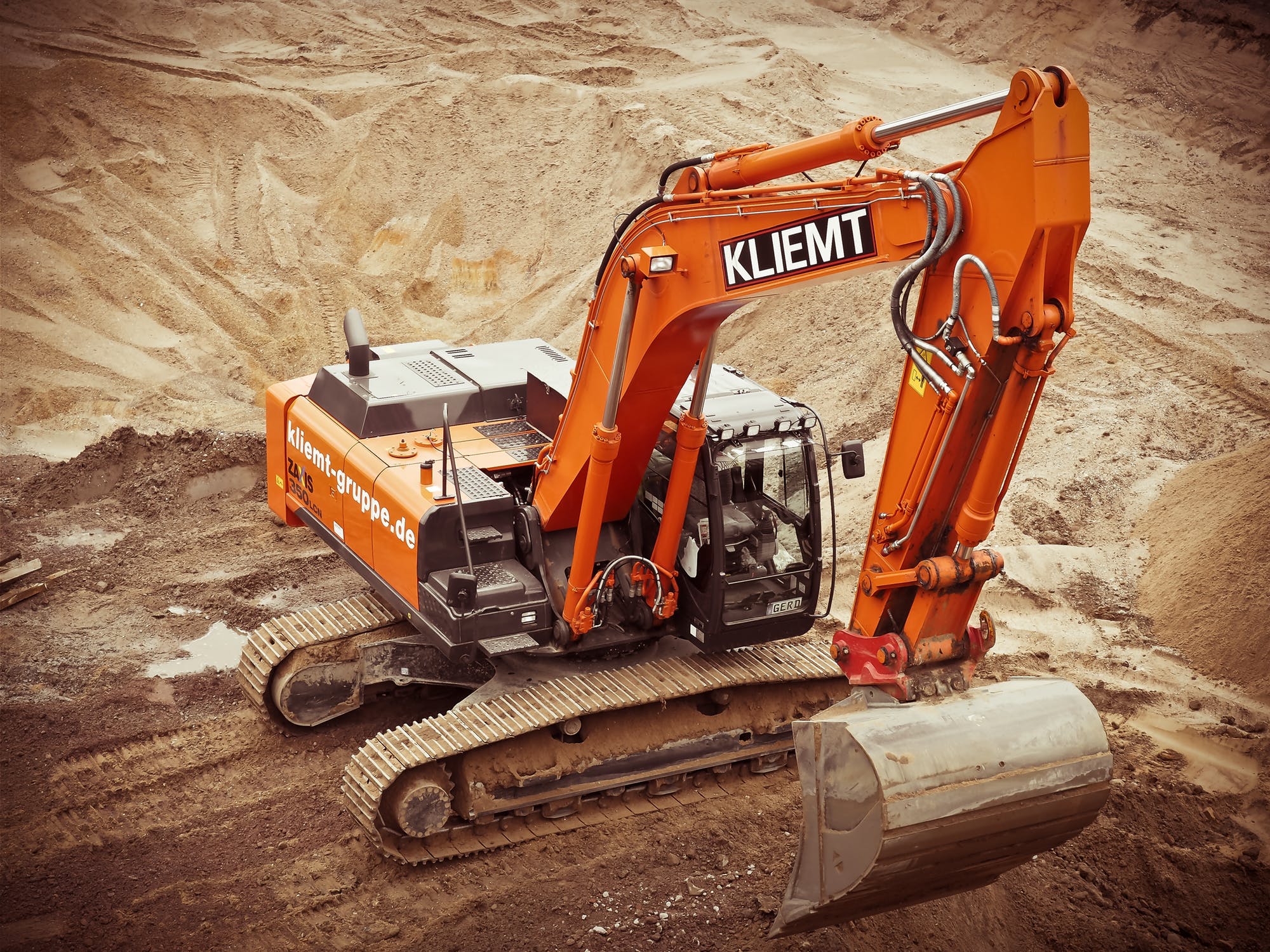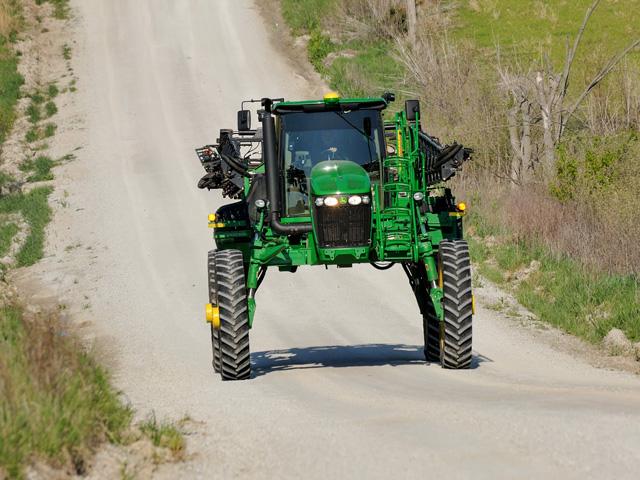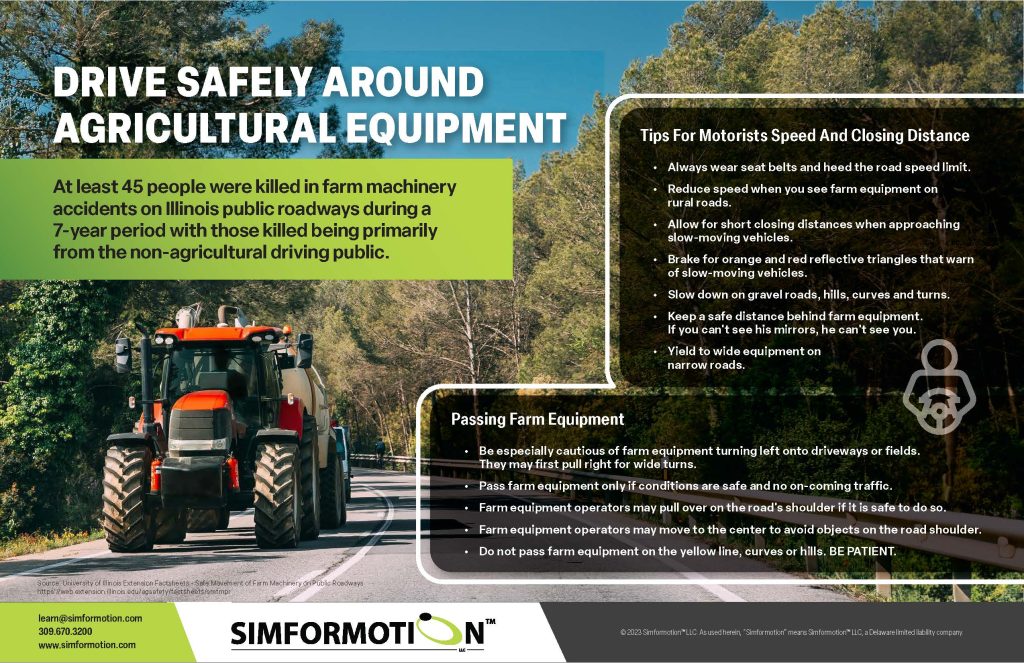You stand in a field, surrounded by the hum of powerful machines that make farming possible on a grand scale. Operating heavy farm machinery is not just a task—it’s an art and a responsibility.
Your safety, and that of those around you, hinges on knowing how to handle these machines properly. Imagine the confidence you’ll feel when you know exactly what to do to prevent accidents and ensure smooth operations. By following a few crucial safety tips, you can transform the way you approach your daily tasks, making your work not only more efficient but also much safer.
You deserve to work without worry, and this guide will show you how to do just that. Keep reading to discover the essential strategies that will empower you to operate heavy farm machinery with skill and peace of mind.

Pre-operation Safety Checks
Operating heavy farm machinery requires attention to safety. Before starting, it’s crucial to perform pre-operation safety checks. These checks ensure equipment is in good condition. They also prevent accidents and improve efficiency. Regular inspections help identify potential issues early. This section offers practical tips for conducting pre-operation safety checks effectively.
Inspecting Machinery Components
Begin by examining key machinery parts. Check tires for proper inflation and wear. Inspect belts and hoses for signs of damage. Ensure lights and signals function correctly. Look for any fluid leaks or unusual noises. Address any issues immediately to avoid complications.
Reviewing Safety Devices
Safety devices play a vital role in operations. Confirm that emergency brakes work properly. Test seat belts and restraint systems for functionality. Ensure guards and shields are securely in place. These components protect operators during use.
Checking Fluid Levels
Fluid levels impact machinery performance. Verify engine oil and hydraulic fluid levels are adequate. Ensure coolant and fuel levels are within safe limits. Proper fluid levels prevent overheating and mechanical failures.
Assessing Operator Controls
Operator controls must be responsive. Test steering, throttle, and brake controls. Ensure all switches and levers operate smoothly. Responsive controls enhance operator confidence and control.
Reviewing Manuals And Guidelines
Familiarize yourself with equipment manuals. Follow manufacturer guidelines for pre-operation checks. Manuals provide specific instructions tailored to machinery. Adhering to guidelines helps maintain equipment integrity.

Proper Training And Certification
Operating heavy farm machinery is no small feat and requires a keen understanding of safety protocols. Proper training and certification are essential for anyone stepping into the driver’s seat of these powerful machines. Certification not only ensures that you are well-versed in handling the equipment but also demonstrates your commitment to safe practices, protecting yourself and those around you.
Understanding Certification Requirements
Before you hop onto a tractor or combine harvester, familiarize yourself with the certification requirements specific to your region. Each area might have different rules, so it’s crucial to know what’s expected. Certification often involves a mix of theoretical knowledge and practical skills, ensuring you’re fully prepared for the field.
Choosing The Right Training Program
Not all training programs are created equal. Seek out courses that offer hands-on experience with the machinery you’ll be using. Look for programs that include both classroom learning and field training. This comprehensive approach helps you grasp the nuances of operating heavy equipment safely.
The Importance Of Refresher Courses
Even seasoned operators benefit from refresher courses. These courses update you on the latest safety protocols and machinery advancements. They serve as a reminder that safety is a continuous process. Refreshing your skills can prevent complacency and ensure your operations remain safe.
Personal Experience: A Lesson Learned
I once underestimated the importance of proper training when I started working on my family farm. A minor mishap taught me that no matter how familiar you are with the machinery, training is indispensable. This experience made me advocate for thorough training and periodic certification reviews.
Ask Yourself: Are You Adequately Prepared?
Reflect on your current knowledge and skills. Are you aware of all the safety protocols for your machinery? Do you hold the necessary certifications? If not, consider enrolling in a training program. Remember, the right preparation can prevent accidents and enhance productivity.
Taking the time to ensure proper training and certification can significantly impact your farm’s safety and efficiency. Equip yourself with the right knowledge, and you’ll handle machinery confidently and responsibly.
Safe Operating Techniques
Operating heavy farm machinery safely is crucial for both your well-being and the productivity of your farm. It’s not just about getting the job done; it’s about doing it without putting yourself or others at risk. You might think that operating these machines is straightforward, but there are specific techniques that can make a significant difference in safety. Have you ever wondered if there’s a better way to handle your machinery? Let’s dive into some safe operating techniques that can help you work smarter and safer.
Know Your Machine
Before you even start, make sure you know every inch of your machinery. Familiarize yourself with the controls and functions. It’s like getting to know a new car; you wouldn’t drive without understanding the basics, right?
Check the manual for operating instructions specific to your model. Even if you’ve used similar machinery before, each model can have its quirks. Knowing these can prevent unexpected surprises.
Perform A Pre-operation Check
Conduct a thorough pre-operation check every time. Look for wear and tear, fluid levels, and tire conditions. This routine can prevent breakdowns and accidents.
Consider creating a checklist. It’s like your morning routine; you wouldn’t skip brushing your teeth, so don’t skip checking your machinery.
Stay Attentive
When operating machinery, focus is key. Distractions can lead to mistakes, and mistakes can be dangerous. It’s similar to driving; you wouldn’t text and drive, so keep your focus sharp.
Limit noise and eliminate distractions. Ensure your environment is conducive to concentration.
Use Proper Safety Gear
Always wear appropriate safety gear. This includes helmets, gloves, and protective eyewear. Think of it as your armor, protecting you from unexpected hazards.
Keep your gear accessible. Just like you wouldn’t leave your seatbelt unbuckled in a car, don’t skip your safety gear.
Adjust Speeds Appropriately
Adjust your speed according to the task at hand. High speeds can be dangerous, especially on rough terrain. It’s like knowing when to speed up or slow down while driving.
Consider the ground conditions and visibility. If it’s muddy or foggy, slower is safer.
Communicate With Your Team
Keep open lines of communication with your team. Use hand signals or radios to ensure everyone is on the same page. Imagine the chaos if you didn’t signal while changing lanes; it’s the same here.
Regular check-ins can prevent mishaps. Make sure everyone knows their role and the plan.
Operating farm machinery safely requires diligence and attention to detail. These techniques aren’t just tips; they’re essential practices for your safety. What changes will you make today to enhance your safety measures?

Emergency Preparedness
Handling heavy farm machinery demands attention to safety. Emergencies can occur without warning. Preparing in advance is crucial. Being ready can save lives and prevent injuries. Let’s dive into essential emergency preparedness tips.
Stay Informed About Weather Conditions
Weather impacts farm operations greatly. Checking forecasts regularly is essential. Avoid using machinery during storms or extreme conditions. This reduces the risk of accidents and machinery damage.
Have A Communication Plan
Ensure everyone knows how to communicate during emergencies. Radios and mobile phones are vital tools. Always keep them charged and within reach. Clear communication can speed up emergency responses.
First Aid Kit Accessibility
First aid kits should be easy to find. Keep them stocked with necessary supplies. Regularly check and replace expired items. This ensures readiness in case of injuries.
Know Your Emergency Exits
Familiarize yourself with all emergency exits. Quick access to exits can be lifesaving. Ensure paths are clear of obstacles. Practice regular evacuation drills with your team.
Train And Educate Your Team
Training is vital for emergency readiness. Provide regular safety training sessions. Teach team members how to handle different scenarios. This boosts confidence and preparedness.
Emergency Contacts List
Maintain a list of emergency contacts. Include local authorities, medical services, and nearby neighbors. Keep this list visible and updated. Quick access to help can make a difference.
Conclusion
Operating heavy farm machinery requires care and attention. Safety is always a priority. Follow the tips to ensure safe work. Always check equipment before starting. Wear proper safety gear. Stay alert and avoid distractions. Train regularly to improve skills. Keep communication open with your team.
Regular maintenance prevents accidents. Create a safe work environment. Stay informed about new safety guidelines. Protect yourself and others at all times. Safety ensures a successful farming operation. Keep learning and stay safe.



